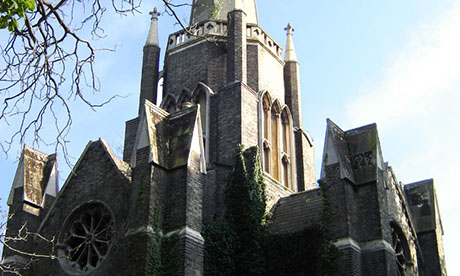Cruise controls: Abney Park sex under scrutiny
Most Hackney residents know that, like all of London’s green spaces, Abney Park is an oasis of calm for locals. Some visitors use the park to walk, others to relax, and others to get a little privacy.
And like other parks in London, Abney Park is occasionally used by visitors for public sex. Unlike London’s better-known cruising spots, though, the tiny 30-acre site still has a good reputation for being safe – particularly given it closes around 7pm in the evenings.
Hackney has awarded nearly £8,000 to fund two people to patrol the park weekly until April 2016, and the patrols have unanimous support from all major local stakeholders.
The Healthier Hackney Fund, which financed the initiative, was set up specifically to deal with complex health problems and the £7,972 funding for the Terrence Higgins Trust (THT) came from a pot of £370,000. Grants were also given to local health projects such as a Mini Olympics (run by the Sebright Family Forum) and a cycling course for carers (TIKVA).
Del Campbell, an outreach worker for the THT, explained that the charity has previously carried out patrols on Clapham Common and Hampstead Heath to target public sex.
He says: “On the Heath we promoted a ‘Bin It’ campaign, asking users not only to be safe, but to respect the local environment. Over the years we noticed a change of behaviour where users do show more sensitivity towards each other whether they are cruising, dog walking, or jogging.”
Outreach dwindling
Dr Iain Reeves, consultant physician in sexual health and HIV at Homerton Hospital, says the project can only be good news for Hackney residents: “Outreach projects for hard to reach groups like men who have sex with men have dwindled across London because of a lack of funding.
“Trying to identify if there’s a problem and what people are doing is a good thing for sexual health in Hackney because we need work like this to assess what people’s needs are in the borough, especially for marginalised groups.”
He explains that undiagnosed infection is one the key drivers of one of rates of infection: “MSM are at a high risk for sexually transmitted diseases, especially syphilis, gonorrhoea and HIV, and the latest research show that STIs are stable or decreasing, except for people in that group.
“The stigma of sexual orientation can be a barrier to getting tested so any intervention is good for that group.”
Trust on board
Councillor Jonathan McShane, Hackney Council’s cabinet member for health and social care, supports this approach: “The sooner people are diagnosed and treated the less likely that they will suffer long term consequences or that they will pass on any infections.
THT patrols also have the support of the Abney Park Trust.
Trustee Justina Kochansky says: “It’s been a pleasure working with them and I think many of the visitors to the park are happy to see them too.
“There were concerns about litter that the THT are addressing. Just like dog owners who don’t clean up after their pets, it only takes one or two individuals to create a problem. Getting a handle on the actual size of the cruising is another aspect of the work that THT are doing.”
The two outreach workers in the park will be walking in the park for three hours a week until the scheme finishes at the end of March, getting to know the people using the park and offering advice about sexual health, mental health and housing. Patrols are expected to tail off in the winter, as typically cruising is most popular in the summer.
Campbell concludes: “Certainly for the continuity of the work, and to ensure it is as effective as possible, we would like it to see the potential beneficial impacts of the project.”

